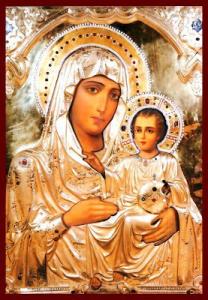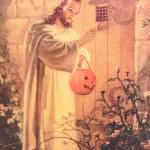The Reality Deniers
Communism in the Soviet Union was dying. The evidence was everywhere, but credentialed minds in official educational institutions could explain impotence as rebirth, bare sentience as brilliance, and official evil as a necessary destruction of eggs to make an omelet.
Reality was not fooled and the Soviets fell.
Grifters and liars existed, of course, battening on the system in 1988, but it was the sincere, credentialed types, the earnest who had worked their way up through the system and still believed that were most pitiable and harmful. They gave the dead, not life for no man can give life to the dead, but vampiric undead status. They talked, published (Soviet peer review!), and convinced themselves that their betrayal of the working class was heroic sacrifice in their favor.
Did the working class appear to hate them? Did they appear not to fit the theories? That the working class hated them was either not true (“Let us look at that data more closely. Surely not.”) or demonstrated a problem in the working class that the terribly sincere credentialed class must educate out of them. What they were seeing could not be true, and so the clerks, the one’s earning the proper marks and degrees, made the Russian agony greater by prolonging the needed reckoning.
One does not have to spend much time on social media or in higher education, particularly Christian higher education, to see the treason of the credentialed against reality. Some event will be so obviously contrary to their claims that there will be a moment of clarity, but that moment quickly passes. The theory, the talking, the footnoting of history, can explain everything and the credentialed explanation ends up claiming vindication by facts that actually refuted the theories to the thinking mind unburdened by the credentials.
Did no Orthodox Christian anywhere until just now believe an idea? The credentialed respond, “Is this true? What of this? Or that? What of a more nuanced approach?” Soon what was manifest is obscure and the “dialogue” will continue until the end result desired by the credentialed, fitting the ideology of the times, is achieved. Facts are fitted to the words and at the credentialed institutions, the proper ones, words dominate facts. If the outsider dares complain, then he can be ignored as not the right sort.
No book is so bad that if it fits the general opinions of the credentialed it will not get a favorable review, a “point” on the tenure application, or good write up from the useful idiot academic. Given time, the credentialed can explain anything away in favor of the cause she advocates. Against this is the expert, modest, careful, hesitant to make judgement, and so useless to any ideological regime, but of great value to humanity!
God grant us experts! The experts are data driven, know their fields, and are modest in their claims.
Attend to the experts, but the credentialed often have little expertise outside of ideology and conformity to class. They frequently write broad manifestos unrelated to any area in which they earned genuine expertise. If they cannot ignore a fact, they can define it away: words against reality.
To Chisholm
Philosophers of my era made a little joke based on the work of a world class philosopher, Roderick Chisholm. Professor Chisholm was a careful definer of terms, a great good in philosophy. Get the definitions of terms right! Sadly, no idea is so good (even clarity of definition) that ideologues, advocacy scholars, cannot twist it to nonsense. The silly sort of Chisholming, bane of first year philosopher graduate students, is the absurdly complex definition that ends up far removed from sensible use of langue or normal intuitions. The advocacy scholar, the party man credentialed by the party, takes this folly and turns it to evil.
The ideologue can take a definition and keep “refining it” until what was once “X” is now “not X!” and “obviously so.”
Yet even total verbal victory is vitiated by verity seen.
The advocacy scholar can ignore data for only so long, sometimes reality bursts into the discussion and the narrative is disturbed. See the Soviets struggling with their failures around the Chernobyl nuclear disaster. Credentialed types will not give up the ideology, they will begin to seek clarity in use of terms, invent new jargon, until eventually what obviously refuted their view (the nuclear plant has failed) conforms to their broader world view.
The more carefully footnoted the Chisholming is, the better the credentialed will like it. Better still is one who can reference ideological allies, and so build a narrative that the “experts” all agree. “No problem here,” they proclaim, “in fact, this fact shows we were right all along. Our leaders are not moribund, but vital with the vitality our ideology brings.”
If the credentialed have one skill, it is to “Chisholm” almost any situation to fit the preferred ideological narrative.
Our Own Credentialed Class
This does not just happen in the Soviet Union. It does not just happen in secular circles. Religious people, even credentialed religious people, can be ideologues, cherry picking their way to conformity. Recently, I read a book by a Christian philosopher, with excellent credentials, that was so badly argued no serious philosopher would touch a review. Because it has the right targets, picking nuts and religious scoundrels that all decent people, including the credentialed despise, few wish to point out the utter failure of the argument. They avert their eyes and other advocacy scholars, the credentialed of the era, clap and affirm, because that is what the system is designed to do. The credentials are given for conformity and advocacy, not verity seen.
The solution is not anti-intellectualism or despising genuine expertise. Instead, the experts never become mere advocates of an ideology. The Socratic challenge, questioning everything, must remain. We must honor the bounds of our disciplines. One reason Saint Constantine College has formed the Orthodox Studies Institute is to be normal in just this way: no cultural wars, no ideologues, just expertise following the argument where it leads.
We will not be perfect, but we will tell the truth the best we can. We stand with reality, the dialectic, the Logos of God.
When the Mother of God said “yes,” then history changed. The credentialed Chisholmed and tried to fit reality into their verbal systems, but the reality of Christmas brought a joy to the world they could not defeat.


















